SUMMARY
This is AI generated summarization, which may have errors. For context, always refer to the full article.
![[OPINION] How do you teach students discipline and honesty through a computer screen?](https://www.rappler.com/tachyon/2021/10/national-teachers-day-values-to-online-kopyahan.jpg)
This National Teachers’ Month, I acknowledge the key role of our educators in instilling values in our youth.
I remember the effort my own teachers made to inculcate values through classroom decor: wall decorations using huge cut-out letters that spelled out values-laden quotes such as “Bayan muna bago sarili,” “Ang Pilipino ay Maka-Diyos, Maka-Tao, Makakalikasan at Makabansa,” and “Honesty is the best policy.”
This pandemic, however, character building has become a daunting challenge to all teachers. “Online kopyahan” and the scheme of paying someone to do their classwork are apparent issues concerning students’ values in this time.
Just last year, Republic Act 114761, institutionalized the Good Manners and Right Conduct (GMRC) subject for Grade 1 to 6 students, and the Values Education subject for junior high school learners. The law also mandated teachers in the senior high school level to integrate values education into the teaching of Grade 11 and Grade 12 subjects.
But EsP or Values Education teachers are not the only ones tasked to cultivate positive characteristics among our children. All teachers in all subject areas are duty-bound to incorporate in their lesson plans the values students can pick up when mastering a certain learning competency. We call it “valuing.”
In my pre-pandemic class, during the first day orientation, I always made sure that I emphasized the importance of observing proper conduct. It was also imperative to me to integrate valuing in my lesson plans and execute them to the fullest. During assessments, I had to guard the learners well, creating sets of exams to avoid leakage of the test, and scrutinizing the authenticity of their outputs to check for any attempt at plagiarism.
Though issues involving students’ discipline and honesty have persisted even pre-pandemic, values formation among our youth has been strongly challenged by the limitations and difficulties set by the current health crisis.
In the public school where I am teaching (and in other public schools across the country), modular learning is the most preferred learning modality by parents and students. But it is obviously a complex setup for teachers who want to authenticate learners’ work. Our school cannot turn to technology (Turnitin and SelfAssign) to authenticate outputs and proctor exams (Respondus). Our school’s Maintenance and Other Operating Expenses (MOOE) cannot afford their pricey subscription fees combined.
On my own capacity, I try to manually check the honesty and discipline of learners with Google as my reliable companion. However, it is indeed exhausting and time consuming, given that I handle 40 to 60 students per class. And I know I am not alone in this struggle.
For students who were identified to have problematic work, it is also hard to reprimand them, since we all know how poverty and health concerns trouble their families. Teachers should get down from their ivory tower and see the reality on the ground. That is why I need to communicate the matter with the parent and the concerned student instead to find the root cause and eventually seek a solution.
I hope that our government and concerned authorities can seek interventions other than asking the Philippine National Police to crack down on online sites that promote cheating. As what Rep. Fidel Nograles said, the existence of online cheating schemes involving students is a “symptom of a bigger problem.” This concern is definitely beyond the capacity of teachers.
If we want our students to imbibe and embody the spirit of the values-laden quotes our dear teachers have stuck on the classroom walls, our authorities should address first with competence the social illnesses brought on by the pandemic and that are festering among the families of our learners.
Moreover, as what Ateneo development studies program director Prof. Jayeel Cornelio pointed out, education authorities have to review the design of alternative learning in the time of pandemic, as it may be the cause of all these concerns on our students’ work ethic. Our authorities should check “how much teachers can teach, how heavy the learners’ requirements can be, and how to exactly ensure quality.”
These days, honesty, integrity, and discipline matter big-time. Let’s help our young ones to learn them. – Rappler.com
Jeffrey C. Gliban, 31, is a public school teacher and student publication adviser at Limay Senior High School in Bataan. He is studying for his graduate degree at the University of Santo Tomas.
Add a comment
How does this make you feel?
![[OPINYON] Pandemya, pandaraya, at panawagan](https://www.rappler.com/tachyon/2021/09/pandemya-pandaraya-sq.jpg?fit=449%2C449)
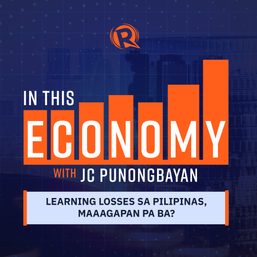
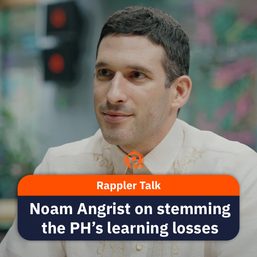
![[EDITORIAL] Ano sana ang takeaway ni Sara Duterte sa firesale ng mga laptops?](https://www.rappler.com/tachyon/2023/05/animated-DEPED-laptop-fiasco-carousel.jpg?resize=257%2C257&crop_strategy=attention)
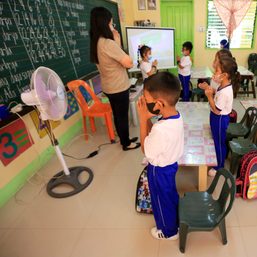
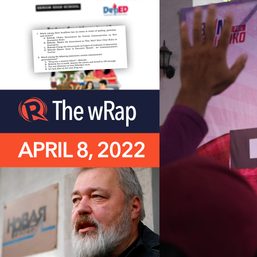


![[OPINION] Moving beyond blaming teachers: The call for regulatory deregulation](https://www.rappler.com/tachyon/2024/02/Moving-Beyond-Blaming-Teachers-The-Call-for-Regulatory-Deregulation.jpg?resize=257%2C257&crop=262px%2C0px%2C720px%2C720px)

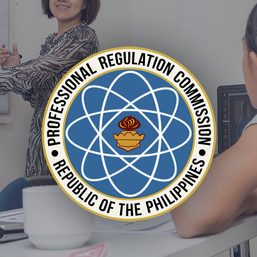
There are no comments yet. Add your comment to start the conversation.